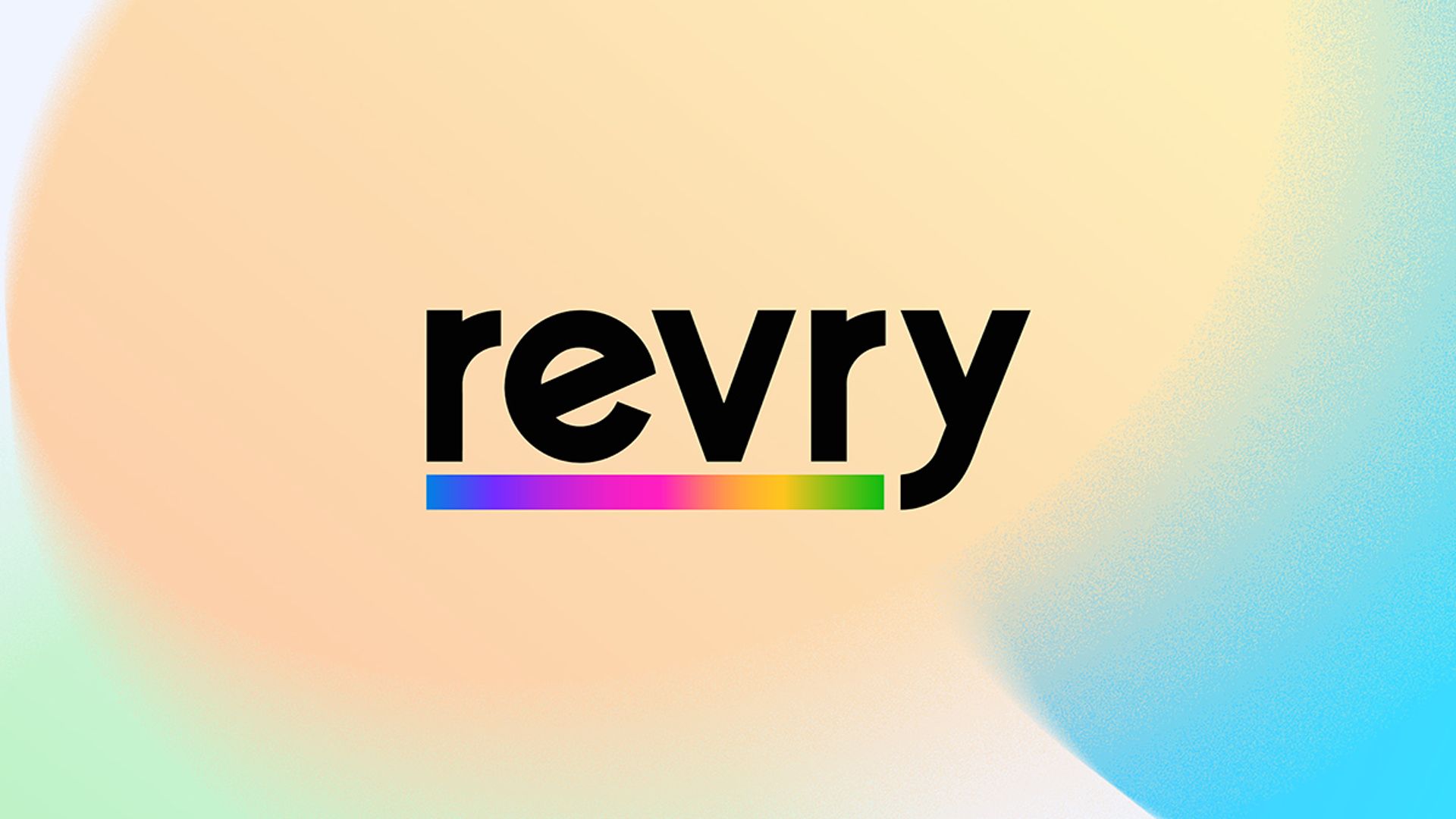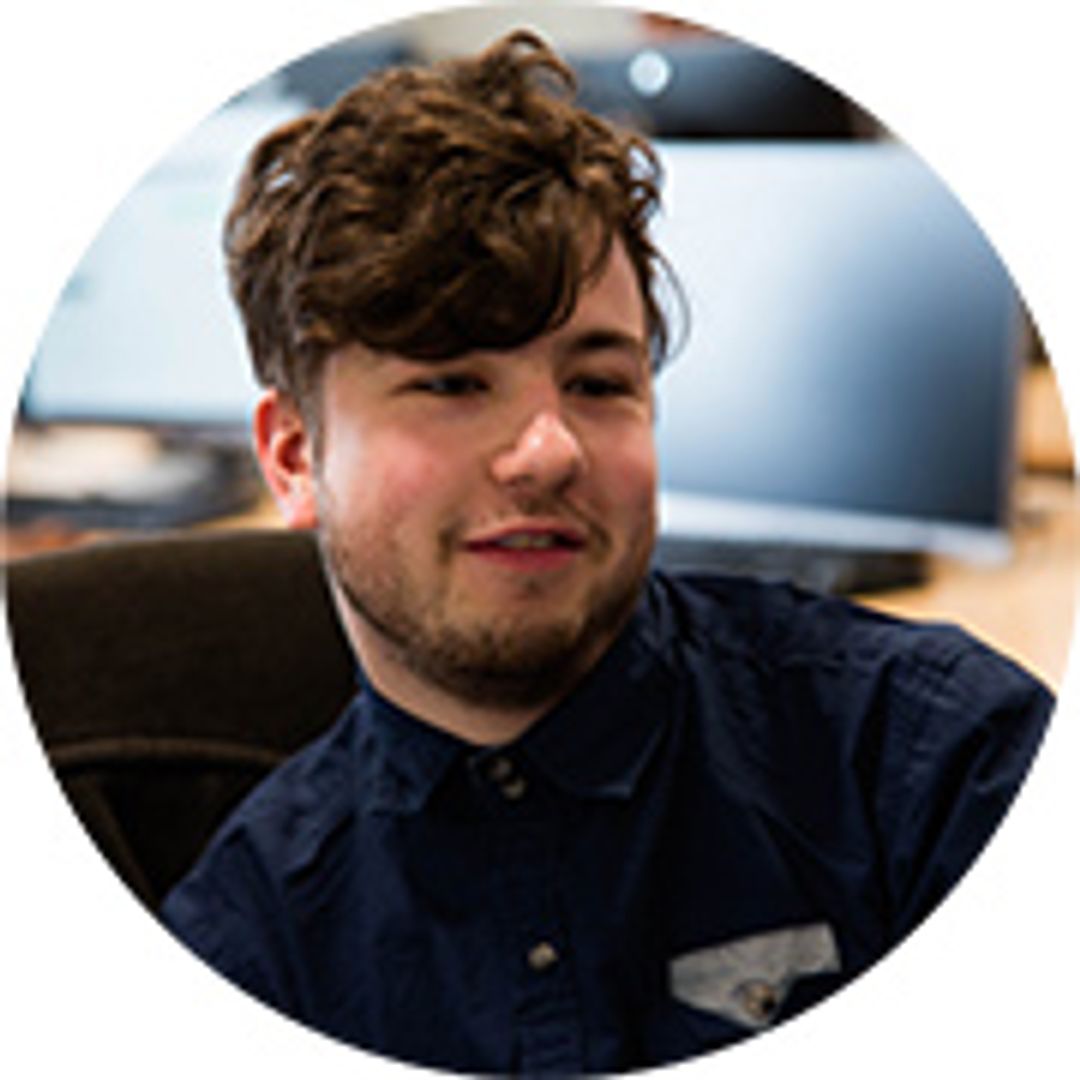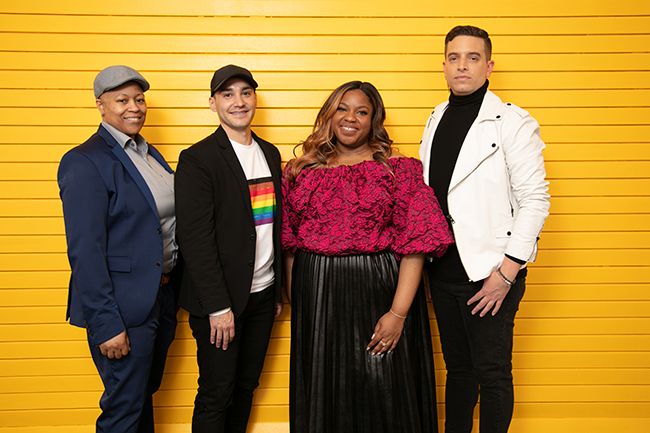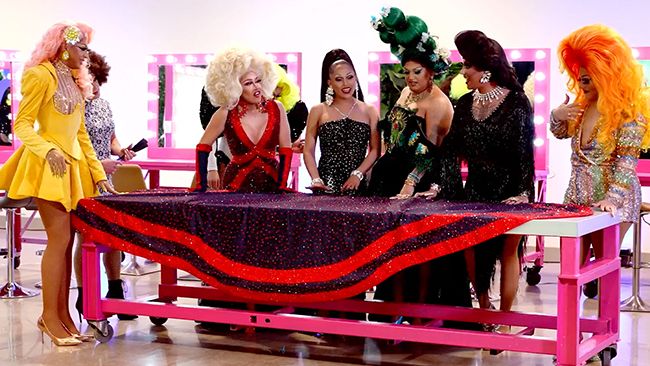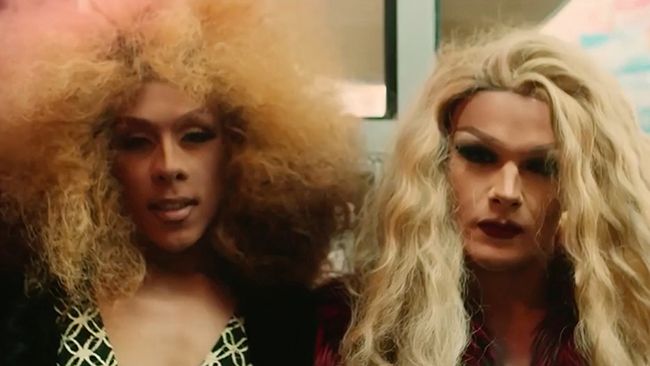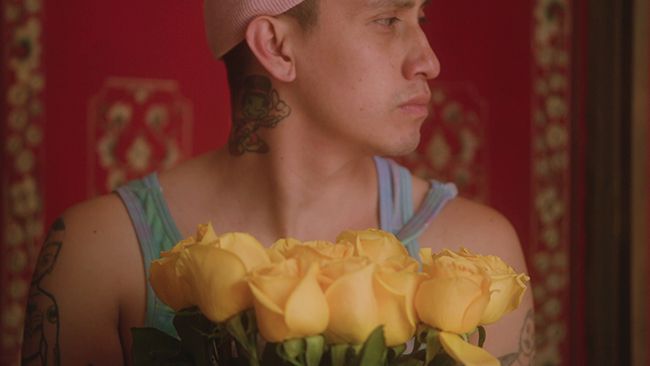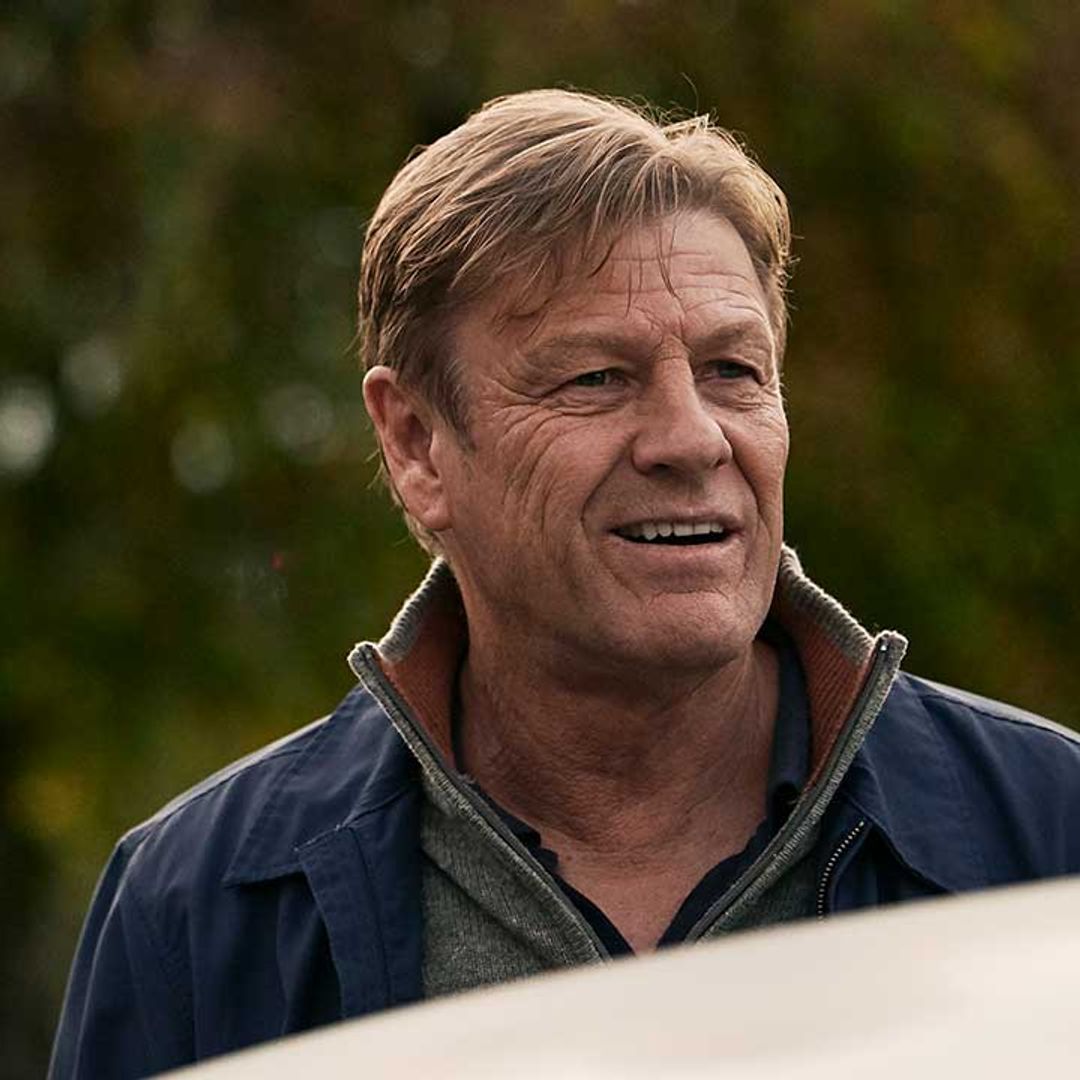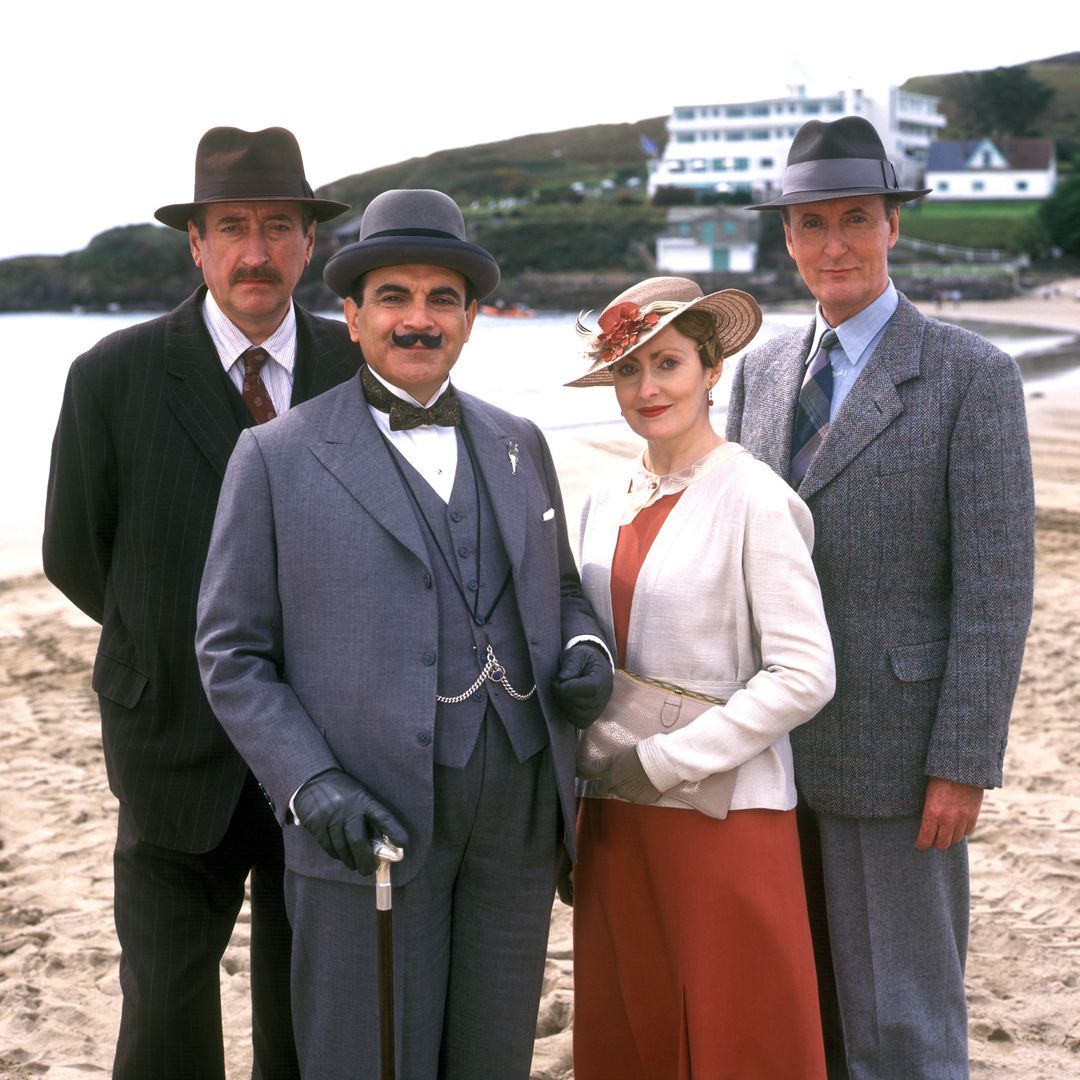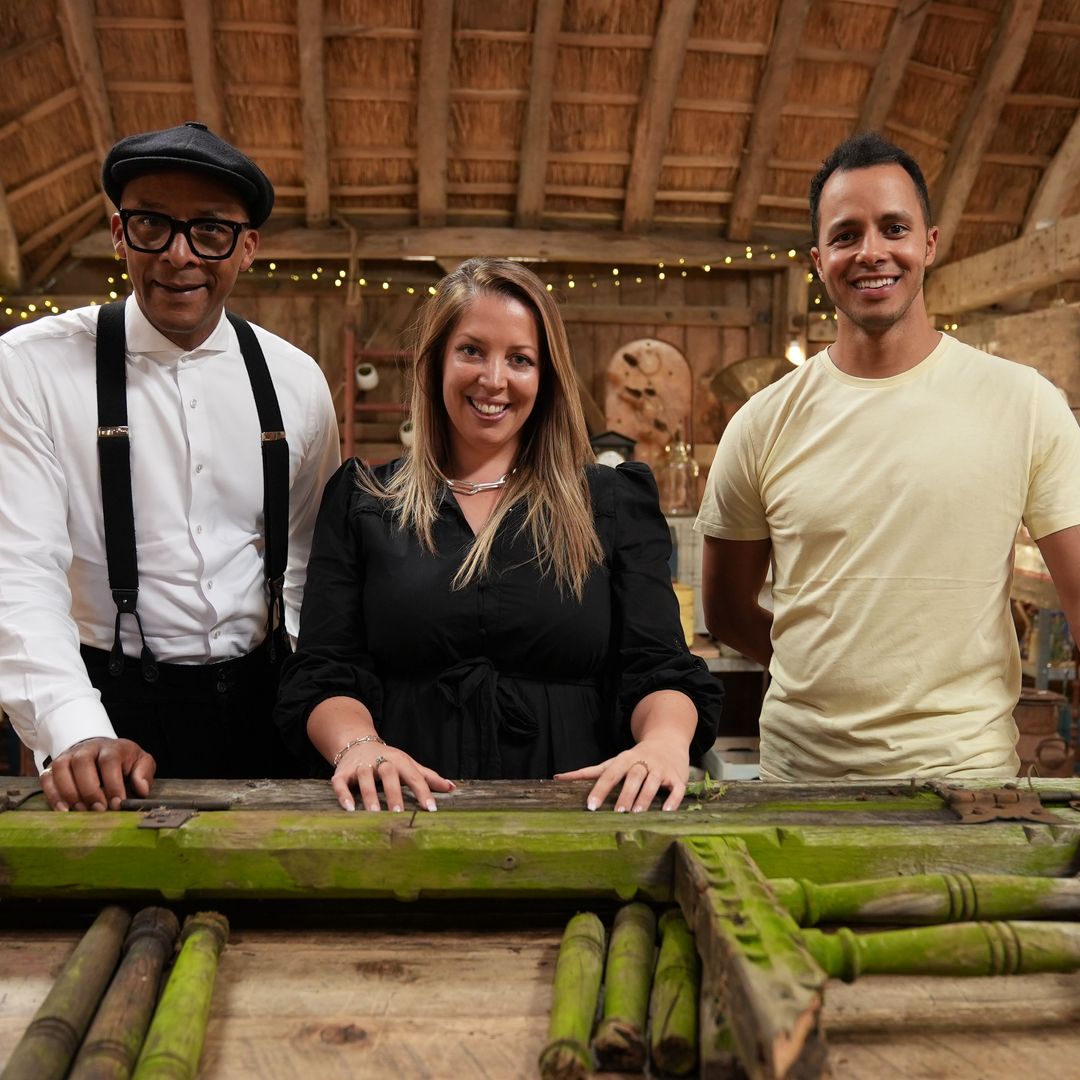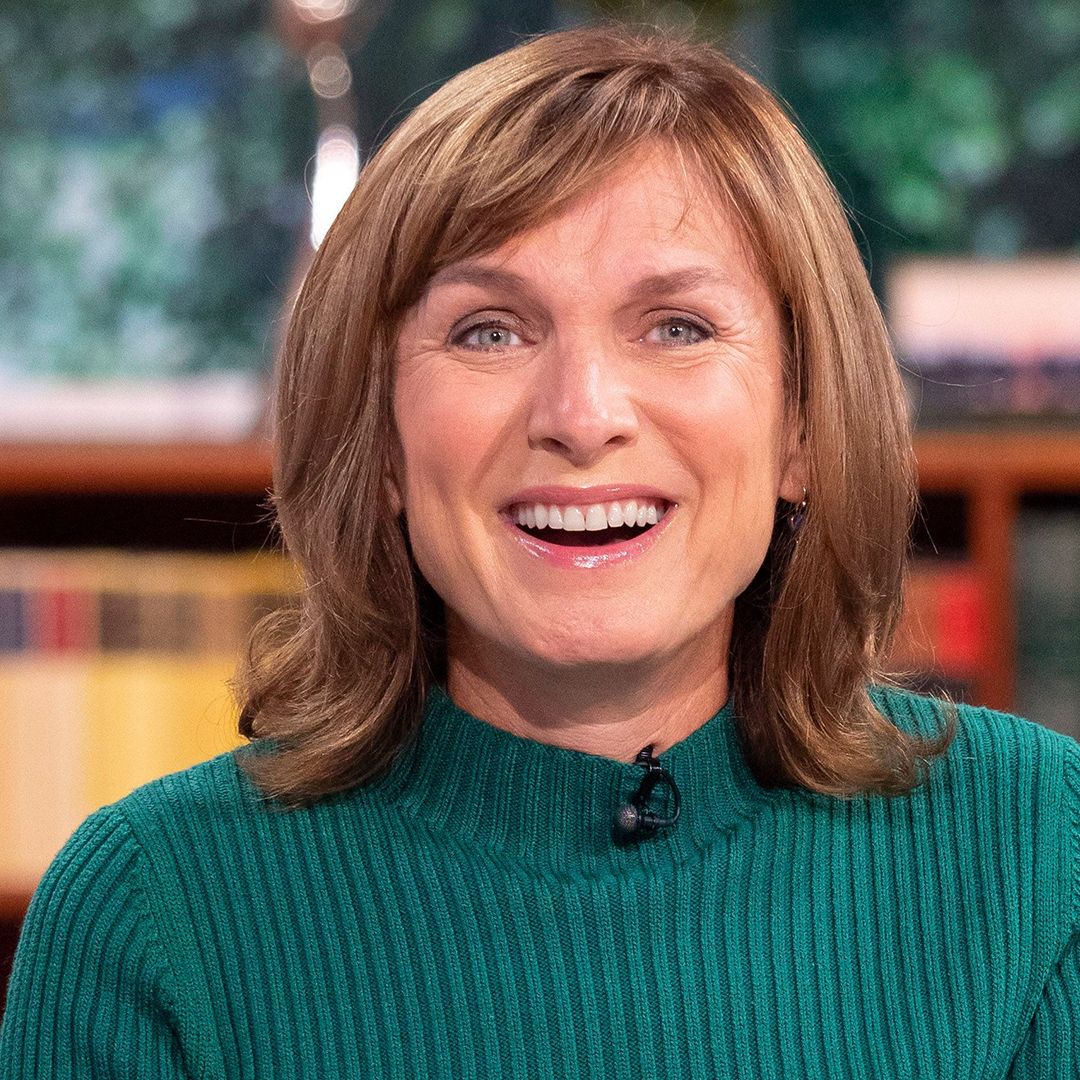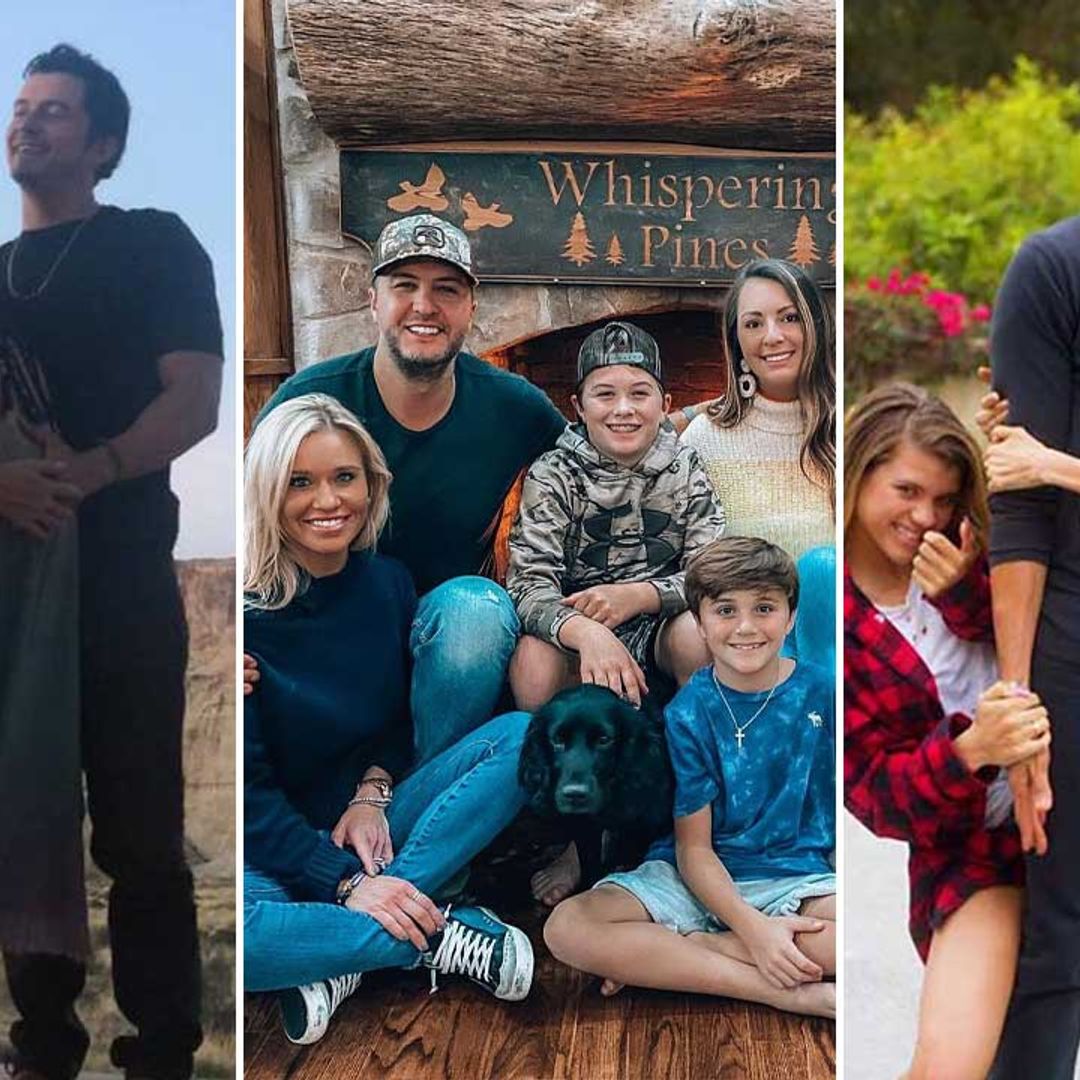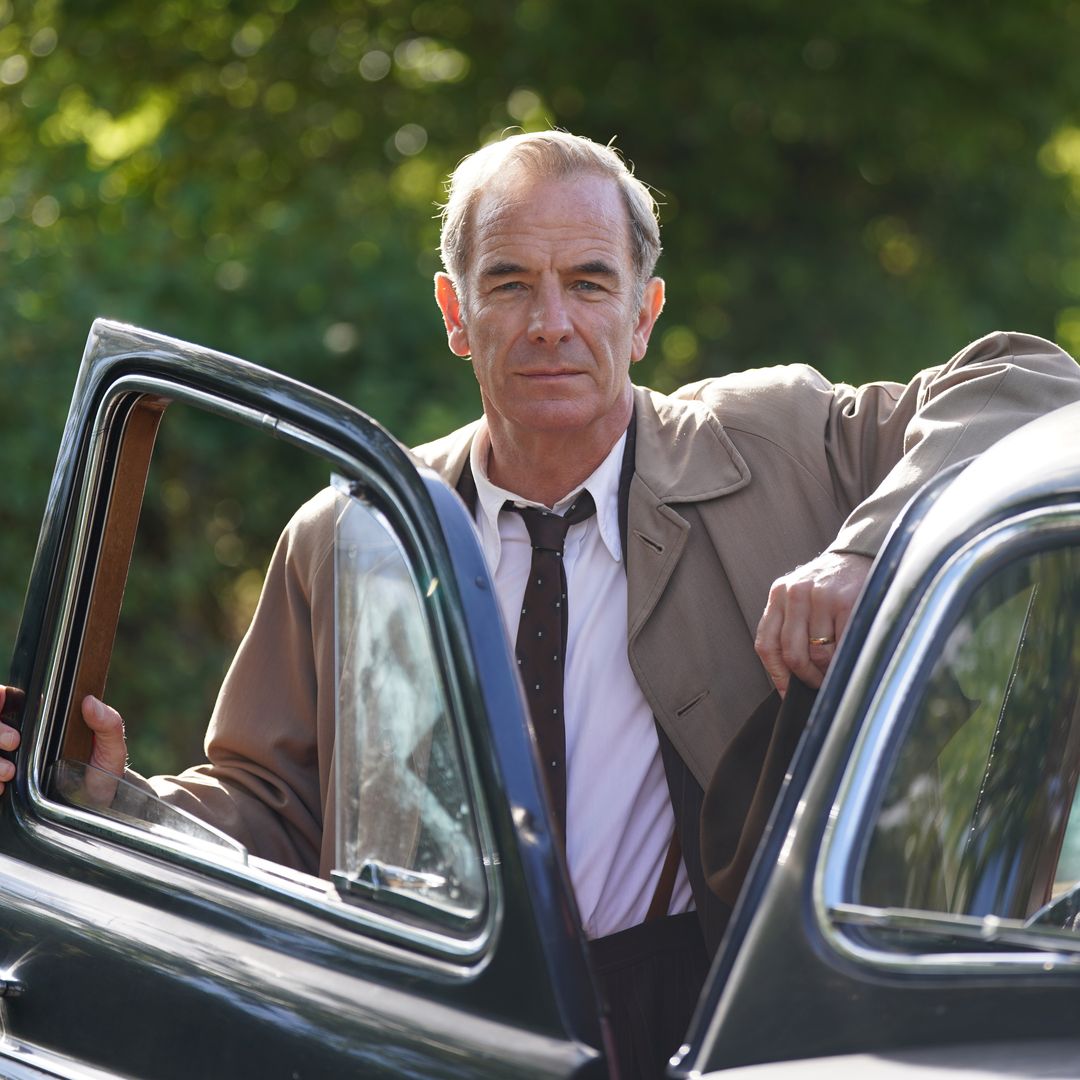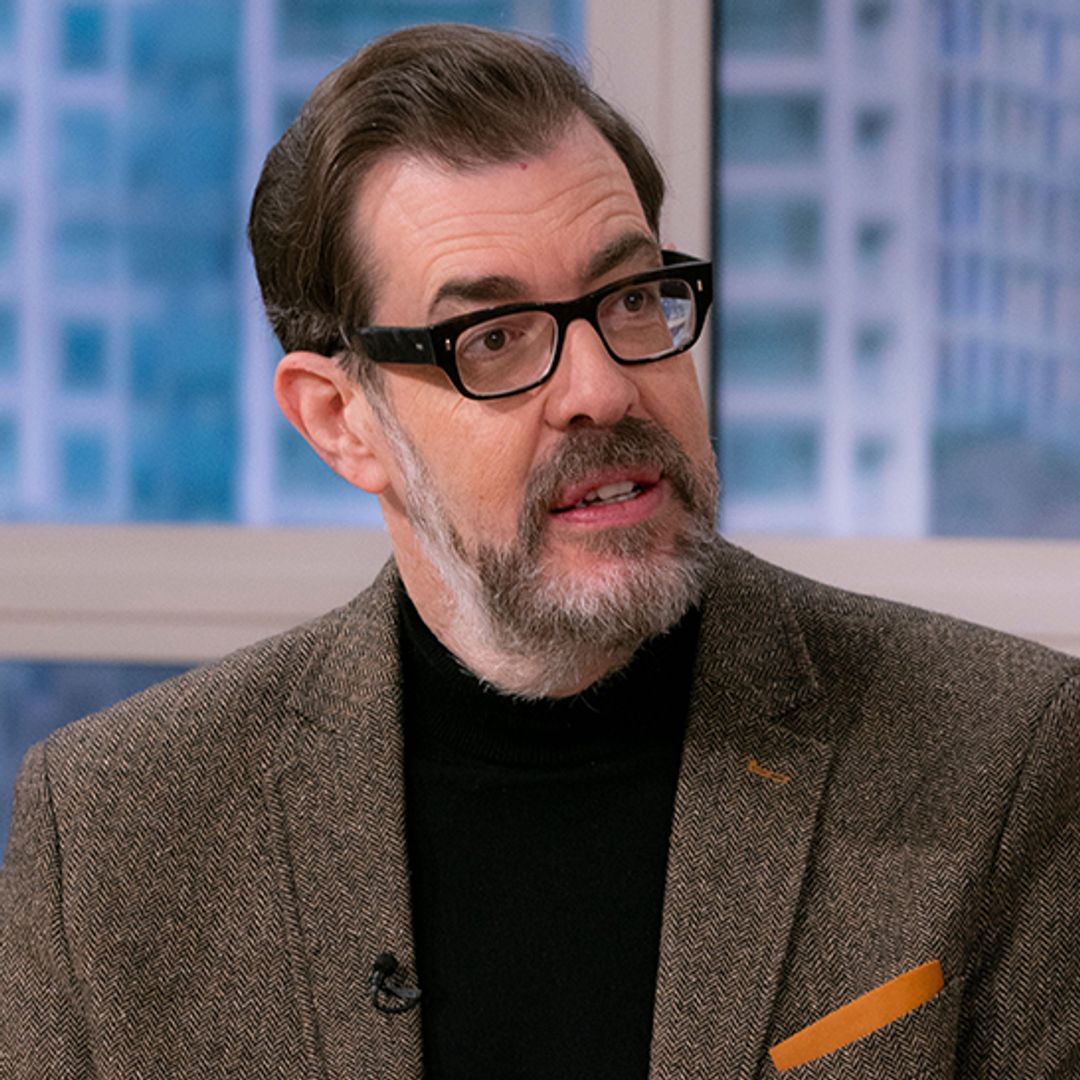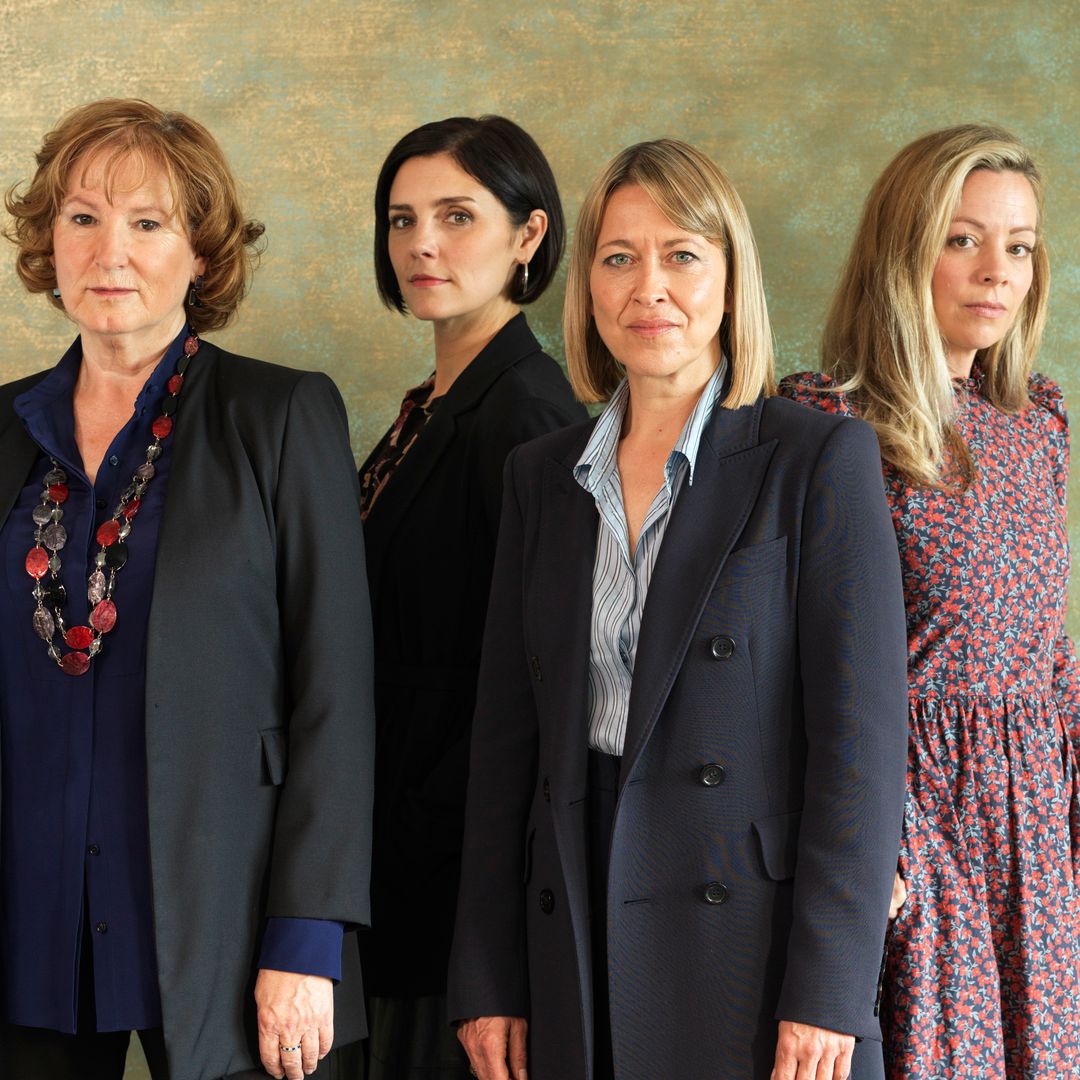Are LGBTQ+ shows your kind of thing? Are you more than happy to binge hours of Heartstopper, RuPaul's Drag Race or Queer Eye? Then the one problem you might find is how it's over all too quickly, with many queer-themed shows sadly being cancelled after just one season.
But one place that will never run out of content is Revry, the LGBTQ+-focused streaming service that was launched in 2016. The platform endeavours to serve the community, allowing every part of the spectrum to identify with the programmes that are put out – and they mean every part, with shows highlighting the trans, non-binary, bisexual and lesbian communities instead of the more common 'white gay' narrative.
WATCH: See what Revry is all about with the trailer of Drag Latina
Sitting down with HELLO! co-founders Damian Pelliccione and Christopher Rodriguez reveal their mission statement with the platform, and how since its launch it has touched the lives of queer people from all across the globe.
What would you say the importance of having a platform like Revry is?
Damian: Revry is co-founded by myself, Christopher Rodriguez, Alia J. Daniels, and Lashawn McGee. We think I'm Hollywood's only non-binary CEO, so we represent, veteran, immigrant, Hispanic, African-American, non-binary, LGBTQ and female identifying founders. What we don't see a lot of is companies that are owned for and by us in terms of our identities; so that creates an identity, an authentic very intentional platform where the majority of our audience is looking at this content, through the lens of never having seen themselves represented before in media. Revry is not geo-blocked, and the biggest thing that we always see is so many different intersectionalities and identities of people from our community who are saying, 'I've never seen a trans music artists like Mila Jam before I didn't even know it existed', or 'I haven't watched a lesbian drama or comedy series where they didn't get killed'. We are constantly getting praise and messages from queer kids around the world, right next to my desk was the first message that I received from a queer kid and this was from 2016. It said: 'I'm a queer kid from Saudi Arabia who has never watched a gay film before. I'm gay, I'm closeted, but I'm afraid for my life because I live in a country that doesn't accept me, thank you for doing what you're doing. I finally don't feel alone in the world.'
DISCOVER: 12 binge-worthy LGBTQ+ shows you need to watch
Chris: Part of that authenticity and part of our mission statement was not duplicating things that have happened in the past. LGBTQ TV networks have been attempted, and we saw them as watering down our community. There tends to be a compartmentalization of what LGBTQ media is, and it tends to be over representative of drag and gay stories; it's amazing that Netflix and these big streamers are all doing LGBTQ stories, but this was a pain point that we saw seven years ago. It's still a pain point now of having the actual LGBTQ community represented and not just doing lip service to the L and the T and the non-binary. We discovered early on that if we were going to tell those stories, we had to create this content on our own. When we first set out to do this network, we weren't necessarily trying to become a production company or producing content independently, but we realised that we had to make that authentic representation.
Damian: We've been recognized for this and it is reflected in our content. We even have these different channels that focus on different demographics, for example, RevryHer is the first and only queer woman channel, we also launched the first queer Spanish language channel, RevryLatinx, and the first queer Portuguese language channel RevryBrazil.
How do you think LGBTQ+ storytelling has progressed and developed over these past few years?
Chris: It's getting more into the mainstream or where these lines between what is mainstream and what is subculture are getting blurred. Over the past few years, it's been pretty solidified that so many quality content out there that has mass appeal. Euphoria is a pretty queer show and it's one of the most popular among the younger generations. On the other side, we have seen issues with these companies being able to justify focusing on these stories for long, Queer As Folk, which was an amazing reboot, it just didn't work on the mainstream.
Chris (second from left) and Damian (right) are two of the co-founders
Damian: We have our newest original show, Drag Latina, it's like if Drag Race and Eurovision had a baby and it was all in Spanish. The queens that we have are everywhere from non-binary to trans to cisgender gay Hispanic men that are doing drag. We got a million views on that premiere episode, middle of October, and there's been such mass appeal and such great response from the Hispanic as well as the English speaking community, on the fact that we're doing something different, it's that community aspect that we've created around that series.
Why do you think it's important for all these queer stories to get this recognition?
Chris: It's not lost on us that part of this is that we were the right team to create this product. 15 years ago, pre marriage equality, the LGBTQ community was like kryptonite, no one wanted to touch it, they thought that it was too sex related. Now, in this space that we're in, companies understand the importance. It's not just them buying ads and running ads and trying to sell their product, this is actually investing in us as a company and us as a community in terms of content. We have a pride special that happens every June called House of Pride which is presented by McDonald's, it's basically like a super queer, super multicultural variety show and we direct them in terms of talent; our whole thing is always bringing up and rising up talent that may not have the recognition that we feel they deserve. For the past seven years, we've had a show called Queer X Awards, but the investment of these major sponsors is helping us create content that is authentic, they're not creating inauthentic content and pushing it on the community, they're actually coming to the people that are within the community to make sure that it actually is reflective of what our sensibilities are. It is important to have representation that's not pandering to our community, because it helps to save lives, tells people in a very simple way that they are not alone. We need to get outside of the world of just hot gay guys, white gay guys and drag queens, because people when you say, 'Hey, we're LGBTQ', and that's all that you're offering it really makes people that are already marginalized feel even more marginalized. Besides, that's not the most interesting thing that our culture has to offer.
Drag Latina was one of the platform's biggest hits
We saw Bros get released and it is one of the first major films with a primarily LGBTQ+ cast and crew. What do you think the impact of having something like that is?
PHOTOS: 15 beautiful LGBTQ celebrity weddings: Rylan Clark, Ellen DeGeneres & more
Chris: I respect and appreciate what Billy Eichner was trying to achieve with the premiere and in the in the marketing around it because it is something that is that is monumental, for our community to have such an unabashedly release with this very queer storyline. It validates the market, it makes audiences that may have been a little skittish about looking at queer stories before more open to it. Queer people, especially those that grew up in like the 90s, we always have to translate stories in terms of our perspective, but it is nice to be on the other end of it, where maybe straight audiences have to do the same. And they're discovering it's not the worst thing in the world to be able to look at a lesbian love story and be like, 'Yeah, I can put myself in that position' or Bros and be like: 'Yeah, I totally get that'.
Why do you think straight people should engage more with queer media?
Chris: The great thing is they are anyways, a lot of people don't realize this, but a lot of the viewership of Revry is we suspect is actually straight. These audiences that are just wanting to be a fly on the wall of what's going on with queer culture. Queer people tend to be trendsetters, they tend to be tastemakers, they tend to be the first early adopters of things because we'll put ourselves out there. The younger generations are the ones that you don't need to convince them to check out queer culture, they're already aware of it, but the older generations, they should do that, because it's interesting, it's different, it's fresh.
Every part of the LGBTQ+ community is represented
Damian: I had an opportunity in 2019 to a keynote speaker at KASHISH, which is the LGBTQ Film Festival in Mumbai. At the reception afterwards, I had this line of queer Indian women and queer Indian female filmmakers, who were coming up to talk to me. We had licensed a really great series called The Other Love Story from an amazing filmmaker in London, Harini Dadalam, based and shot in Bangalore that was half in Indian half in English. And it wasn't until about the third or fourth girl that they're like: 'You don't know why all these women want to talk to you'. And I'm shown the impact that releasing that one story has had on the community as a queer woman from India, and one pulls out her phone, and she turns on her Tinder of all things and she funnels for lesbian and all of the images in the grid were stills from the movie, because it's how they were they were using imagery from this project.
Where do you both see queer cinema and queer series going next?
Damian: Queer stories in general are just going to continue to expand. It's undeniable that we exist, we're becoming louder. One in six millennials identify as LGBTQ, but Gen Z, 52% do not declare their gender and do not declare their sexual orientation. Having a platform like Revry that is for our community made by our community, it's almost like we're a unicorn in that space because if you look at all these other LGBTQ media companies, or even streamers and things like that, they're not owned and operated by our community, which is a sad truth. Gen Z, they're learning who we are, and they're seeing on Revry all the originals, all different identities, ages intersectionality stories from not across the globe and they're like 'Oh, my God, finally, there's a place for me, there's something for me'.
PHOTOS: Meet the LGBTQ mums and dads and their adorable children: From Elton John to Tom Daley
EXCLUSIVE: 9-1-1: Lone Star's Ronen Rubinstein on life after coming out and finding his 'calling'
Chris: We've been doing this from the beginning, but moving past the coming out stories, getting to the point where you're actually looking beyond the struggles of being queer and LGBTQ identity being something that you have to rise above or it's challenge, getting past that, that and telling stories about what makes our culture so unique. It's all about joy, so much of what the queer community has to offer in terms of entertainment is joy, this is why so many of us are in the entertainment field we like to perform we like to do. Queer cinema that's sometimes lost because it's these dour sad stories, which is part of our community, but I feel like it's been touched upon right. And at least for Revry, the next phase is really having these joyous stories again, whether that's the new epic, the new instalment of House of Pride, Queens of Kings, or next season's Drag Latina, like we're just so excited to really like, spread that celebration.
What would you say the one must-watch queer TV show or film?
Chris: In 2001, John Cameron Mitchell came out with Hedwig and the Angry Inch, which was my part of my queer awakening on so many levels, the music, the acting, the comedy, it's one of my favourite things in the entire world. It changed my life in many ways. That's the sort of storytelling that I aspire to where it's like, unabashedly queer, I don't care if I'm putting you off, that to me is the epitome.
Damian: If I'm talking about like something that I'm personally watching right now, the new series of American Horror Story: New York City. I think it's really interesting because it touches on the 80s and what was happening during the outbreak of the pandemic, but set in a horror, whodunnit it, who's killing all the gays in Central Park thematic way, in a very throwing the kitchen sink style. Historically it's Fame from 1980. I don't know what it was, but maybe it was because I come from an acting background, Fame was such a pivotal role, pivotable story, and especially again with a backdrop of the 80s. of New York City. It was the first time I really saw myself represented in a major motion picture even though I probably didn't watch it until I was like 15 years old in the mid 90s.
Like this story? Sign up to our newsletter to get other stories like this delivered straight to your inbox.
